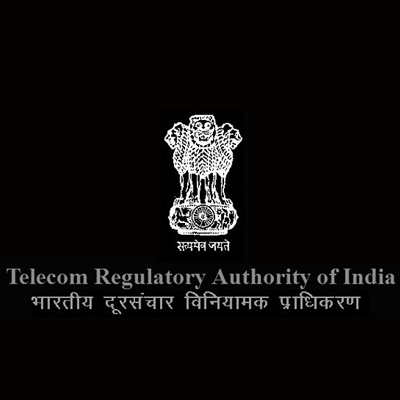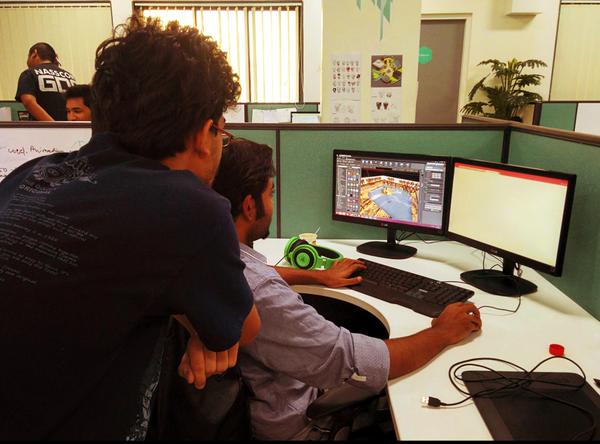 Ever since the Telecom Regulatory Authority of India (TRAI) released the paper on OTT, a lot of buzz has been generated, not only among the various industry people but also the common public about Net Neutrality and how it will change the course of one’s usage patterns of internet; with telecom operators curtailing and curating what one can watch on the World Wide Web.
Ever since the Telecom Regulatory Authority of India (TRAI) released the paper on OTT, a lot of buzz has been generated, not only among the various industry people but also the common public about Net Neutrality and how it will change the course of one’s usage patterns of internet; with telecom operators curtailing and curating what one can watch on the World Wide Web.
Let us first understand what Net Neutrality means:
Let’s say there is an equal playground for all and everyone can come play without having to pay anything extra for entry. One plays anything, without bothering anyone. Basically you are on your own. But someone comes and claims that the playground is his and everyone has to follow his orders. Play by his rules and – more so – pay extra to enter the playground.
Net Neutrality in originality means that once you have purchased data from a company it is upto you what you do with it, without you having to explain it to anyone; but telecom giants like Airtel and Vodafone along with TRAI think otherwise. They want to track the data one uses and then charge extra for the additional services used. This means that they not only charge customers for the data but also the services they use, asking the customers to pay double of what they are currently paying without any benefit to them.
Airtel recently came up with Airtel Zero plan. This allows users to access apps from the developers who have paid to be part of Airtel’s campaign; but has been condemned by the major part of industry not allowing the start-ups and entrepreneurs the visibility which otherwise would have been open. The point in question is: anyone with money muscle would have an upper hand and the customer even though does not approve, would have to use it anyways. Thus, a biggie like Flipkart (which is supposedly part of Airtel Zero)is more likely to go with the flow, than rethink its strategy. Earlier too, Airtel played a spoilsport announcing an extra charge on making VoIP calls; which led to Tweeples criticising this act, and the service provider had to retract its decision in no time.
This is an important issue because companies like Airtel have shown that they want to charge extra money for access to services like Skype, because they compete with the company’s own voice business. Instead of improving its own offering, telcos have the option of simply placing barriers to access the competition.

So, how will it affect the industry at large?
India is witnessing an explosion of small start-up ventures by young uprising entrepreneurs from small centres across the country; but acts and laws like this (if passed) will jeopardise the growth potential of these upcoming small developers and visionaries, who aspire to be the leaders of tomorrow.
Earlier this year, Cellular Operators Association of India (COAI) director general Rajan Mattews, had stated at IMAI India Digital Summit that Net Neutrality was a foreign concept and was not meant for India where the bandwidth was scarce. Also, defending differential pricing Rajan said that charging separately for VoIP, needs to be looked at whether it’s okay to charge for anything on a differential basis.
“One has to understand that Net Neutrality is for everyone and not for people from any one particular region. Paying for additional services would be like paying for particular channels on DTH networks. Also, this would restrict business set-up on dot com where combination of apps, videos and other such activities will have forced payments on consumers,” reasoned a media analyst.
More than 100 technology companies including Google Inc, Facebook Inc and Amazon.com Inc have warned of a ‘grave threat to the Internet.’ However, consumer advocates are pushing for reclassification of broadband providers as public utilities, while tech companies in their opposition to pay-for-priority have not supported reclassification.
Actions and repercussions:
 NASSCOM gaming forum chair Rajesh Rao reacted strongly to this proposed paper, stating that if the TRAI paper to kill Net Neutrality came into being – will affect the gaming community gravely, where major game development takes place through small indie groups. Going forward, these app and mobile developers may need to get a license to launch their products, and pay telecom companies money for their app to reach end users.
NASSCOM gaming forum chair Rajesh Rao reacted strongly to this proposed paper, stating that if the TRAI paper to kill Net Neutrality came into being – will affect the gaming community gravely, where major game development takes place through small indie groups. Going forward, these app and mobile developers may need to get a license to launch their products, and pay telecom companies money for their app to reach end users.
On Airtel violating Net Neutrality, Rajesh mentions, that Airtel Zero is a devious plan offering the user browsing certain sites without data charges. Such plans will have many takers as the society is a sucker for freebies without thinking of long term consequences, which is that the customers are now inside a walled garden, seeing and using what the telcos are providing you to see and use. But one won’t realise that by taking the Zero plan, one can’t see new and innovative products / apps because those apps are not inside the Zero plan.
His post has brought about a sense of awakening among the current crop of developers who seem to share similar thoughts…
Rahul Bali from the gaming community posted: “Net Neutrality is a Global Issue being fought for many years and you people start crying only when Airtel does something that bothers you individually . . . . stop fighting individual fights, let go the fucking Airtel, if you really want open internet you need to support global causes in US and Europe . Airtel is just repeating what Verizon and AT&T tried few years back, which after a successfully protest was declared as Common Human Right Violation.”
Another post by Piyush Mishra read: “Indeed Games Developers will have to be rich rather then Creative to get their Games Famous.”
Being an industry body, NASSCOM is inviting inputs and responses to put forth a strong case to the higher authorities and sought a resolution for this saga; all suggestions need to be sent at ngf@nasscom.in before 15 April.
So, with NASSCOM preparing responses and wanting to sit with the concerned authorities to discuss such a grave issue that will affect the game developer community, only time will tell what the result of this Net Neutrality saga is.
